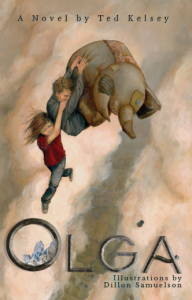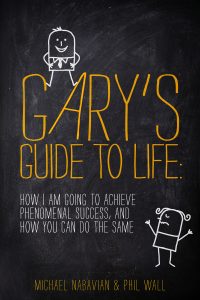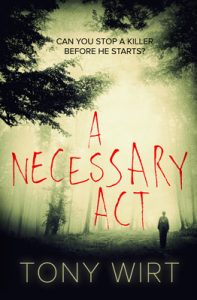The Rundown
The Recommendation
The Rating
The Links
The Reviewer
Renee Miller
Visit Renee Miller‘s website.Last week we discussed writing style and how voice is an important element of a good one. But what the heck is “voice” when referring to writing. Well, let’s see… When you speak, your voice sounds unique from everyone else in the world. (Except me. On the phone, apparently, I sound just like my mother, but whatever.) Your pitch, tone, accent, word choices, and the speed in which you speak all combine to make up that unique voice.
The same is true in writing.
Each writer has a voice, whether we realize it or not. It’s the combination of our beliefs, feelings, fears, biases and experiences bleeding through the white space in everything we write. This is good. It’s what sets you apart from the rest. No one sees the world the way you see it, after all. We form our own voice with the words we choose, how we use them, and the pattern or rhythm we create.
Writers can alter their writing voice, if they choose to do so. Many of us, though, don’t know how to find our voice to begin with, so how are we to change it? Well, pick up something you've written. As you read it, vocalize the words either in your head or out loud. Whatever works for you. You’ll notice many things about the way you write as you do this, but most important will be the rhythm of your voice. If you're not sure you can "hear" it, read a few different passages by a favorite author. You'll see what I mean.
A writing voice that is unpleasant, repetitive, or unfriendly will ruin the reading experience. One that is smooth and inviting, though, is almost like hearing your favorite song. You want to listen to it again and again. Put it on repeat, if you will.
Now you know how to find it, sort of, let’s discuss how to modify your voice so it sings on that page.
Voice and tone are building blocks of writing style, which I’ve already explained in last week's article. Voice is basically “who” is talking, while the tone can be described as the way you’re talking. Both of these things will change somewhat depending on what you’re writing. For example, my voice is different in blog posts and articles than it is in fiction. My voice in “In the Bones,” a thriller/mystery, is a far cry from the one in “Mind F^^k,” which is comedic horror.
Don’t get your knickers knotted trying to figure this all out at once. Finding your voice takes time, and overthinking it can lead to bad writing. It should come naturally, so don’t force it and don’t worry about sounding smart or friendly or that you’re not using proper English or too much profanity, or whatever. Focus on what feels natural and right. The goal of writing is to have your words read and your message understood. The best way to do that is to be genuine. Be you.
Once you’ve identified your voice, you can modify it to suit each piece of writing. As long as you’re being authentic, a piece of you will slip into the white space every time, making it easy for readers to identify your voice over another’s. The beauty of being able to adapt your voice to the piece you’re writing is that you can write anything while still making what you write familiar to the reader. But how do you adapt without changing your voice? How do you identify your voice in the first place?
WHAT DOES IT ALL MEAN, RENEE?
Calm down. There’s a simple exercise you can do to identify and then become more comfortable with your writing voice so that no matter how you adapt it, part of you comes through. It’s really easy.
Figure out who you are and then practice being someone else.
That sounds absurd, but I’m totally serious. It works.
How do people describe you? Don’t know? Ask them. Ask several people how they perceive you. For example, I’m often described as blunt, funny, an asshole. That last one is said with love. Really. Anyway, write something keeping those adjectives in mind. Even if you disagree with these descriptions, be the person they see anyway.
Now, how would YOU describe you? For me, I’d say shy, sweet and humble. (Don’t raise your eyebrow like that.) Using the adjectives you associate with yourself, which are usually different (if we’re honest) from how others describe us, write something else.
Compare the two pieces of writing. You should see notable differences in word choices, sentence length, and how the piece “feels” as you read it, but there will be similarities as well. Try to pick those similarities out. They are key components of your voice. For example, I use a lot of contractions, no matter what I write. I abuse the shit out of commas and I tend to use asides, or breaks in the overall train of thought. I prefer clear, concise words rather than ambiguous ones. My sentences tend to be simple or compound, rather than complex, although I do occasionally run on a bit. I choose dialogue over narrative, and my descriptive prose is sparse. I don’t lean toward lyrical or overly poetic imagery. These things are evident in everything I write, from fiction to articles and social media posts. They are part of my unique voice. I can alter that voice by assuming different personalities as I write (Trying on different personalities also helps with characterization, so yay experimentation!), but my natural voice still bleeds through.
Practice writing short pieces, just a few hundred words each. A bio, a blurb, or a paragraph about what you did last summer. Doesn’t matter what it is you write. Just make sure you write it with a different mood or personality each time. When you compare, you’ll notice words or phrases you consistently use. The sentence length and structure often remains the same or similar. You’ll notice a rhythm, patterns of speech, and descriptive words and writing techniques used repeatedly in each piece.
Finally, the most important thing to remember when finding your voice is to write for YOU. Throw the reader out of the room during the first draft. Don’t worry about whether you’re fancy or smart or even literate. Just write. Your voice will put itself on the page no matter what, and you can worry about the technicalities of word choice and sounding intelligent or whatever when you let the reader back in during the editing phase.










